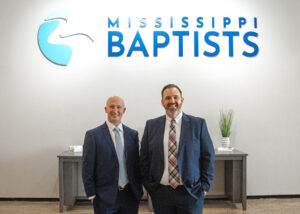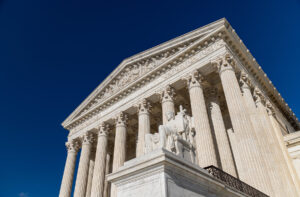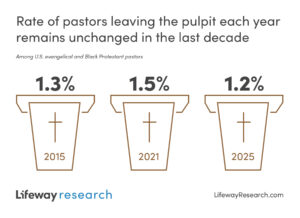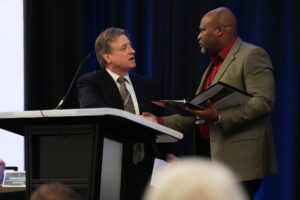WASHINGTON (BP and local reports) – The hearing before the U.S. Supreme Court Dec. 1 on Mississippi’s prohibition of abortions after 15 weeks left pro-life advocates generally hopeful the justices will uphold the state law and possibly overturn other long-standing legal decisions over the past 50 years in support of legalized abortion nationwide.
During a nearly two-hour session, the justices deemed to be conservative questioned the high court’s previous rulings that prohibit bans on abortion before an unborn child is viable. The justices also pondered at length if it would be appropriate to reverse its own precedent in Roe v. Wade, the 1973 decision that eliminated all restrictions on abortion nationwide.
For the Dec. 1 hearing on Dobbs v. Jackson Women’s Health Organization, the Supreme Court limited its consideration of the Mississippi law to whether “all pre-viability prohibitions on elective abortions are unconstitutional.” Viability, or the ability to survive outside the womb, is typically considered to be several weeks after the 15-week limit set by Mississippi’s law.
U.S. District Judge Carlton Reeves in Jackson struck down the law, a ruling that was upheld by the U.S. Court of Appeals for the Fifth Circuit in New Orleans. Mississippi Attorney General Lynn Fitch’s appeal to the Supreme Court was accepted and led to the hearing on Dec. 1.
Questions and comments from the so-called conservative wing of the high court suggested the justices’ ruling, which is expected to be issued by next summer, might uphold Mississippi’s ban and undermine Roe without explicitly overturning it, thereby returning abortion policy to the states.
If Roe is overturned, each state will decide the issue as provided by Amendment 10 of the Bill of Rights that accompanies the U.S. Constitution, which specifically states: “The powers not delegated to the United States by the Constitution, nor prohibited by it to the States, are reserved to the States respectively, or to the people.”
Pro-life supporters contend abortion is not specifically mentioned in the Constitution as a federal responsibility, and thus devolves to the several states.
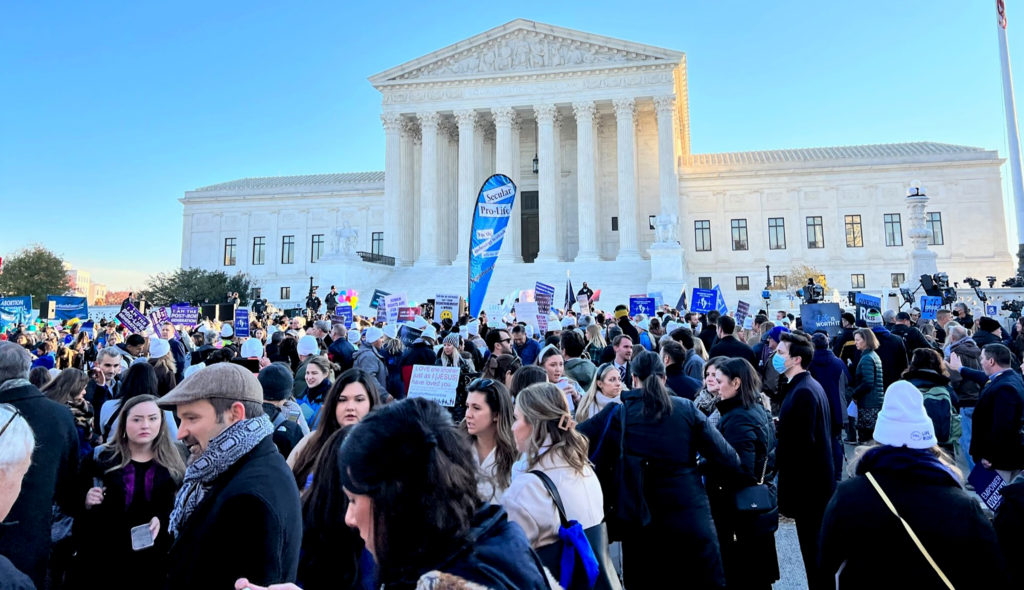
At least 26 states are poised to ban or extensively limit abortion if Roe is overturned, according to an Oct. 28 analysis by the Guttmacher Institute, a research and policy organization in New York City that supports abortion rights.
Brent Leatherwood, interim president of Southern Baptists’ Ethics and Religious Commission in Nashville who was outside the Supreme Court building in Washington, D.C., on Dec. 1, tweeted after the hearing, “Today was a good day for the pro-life movement. After listening to today’s proceedings, I’m left asking a simple question: What good is precedent if it is bad?
“At multiple points, whether it was, for example, the faulty reasoning of the [late] Justice Harry Blackmun in his Roe [majority] opinion, or the irrelevance of the viability standard, it should be abundantly clear that the precedent in the area of abortion is completely unmoored from the Constitution itself.”
Shannon Brewer is director of the Jackson Women’s Health Organization on State Street in Jackson, the state’s sole remaining abortion clinic. She commented to Associated Press (AP) on the day of the hearing that she has never been more concerned about abortion rights in the U.S.
“I just hope that the Supreme Court holds precedent on what they’re supposed to be doing, but my hopes are not that high,” she told AP from Washington, D.C.
The United States has one of the most permissive abortion policies in the world. A study released in July by the pro-life Charlotte Lozier Institute in Arlington, Va., showed 47 of 50 European nations ban elective abortions or restrict them to 15 weeks or earlier.
The United States reportedly is one of only six countries in the world, including China and North Korea, that permit elective abortions after 20 weeks gestation.
“Hopefully the five ‘conservative’ justices will uphold the Mississippi statute limiting abortion in our state,” said Kenny Digby, executive director-treasurer of the Mississippi Baptist Christian Action Commission. “To reconsider the legal validity of Roe v. Wade will probably require some courage on the part of the swing voter in many of the court’s 5-4 cases – Chief Justice John Roberts. He needs our prayers.
“We are so very proud of our state leadership – especially our Attorney General Lynn Fitch and her staff — for defending the Mississippi law before the Supreme Court. They need our prayers.





